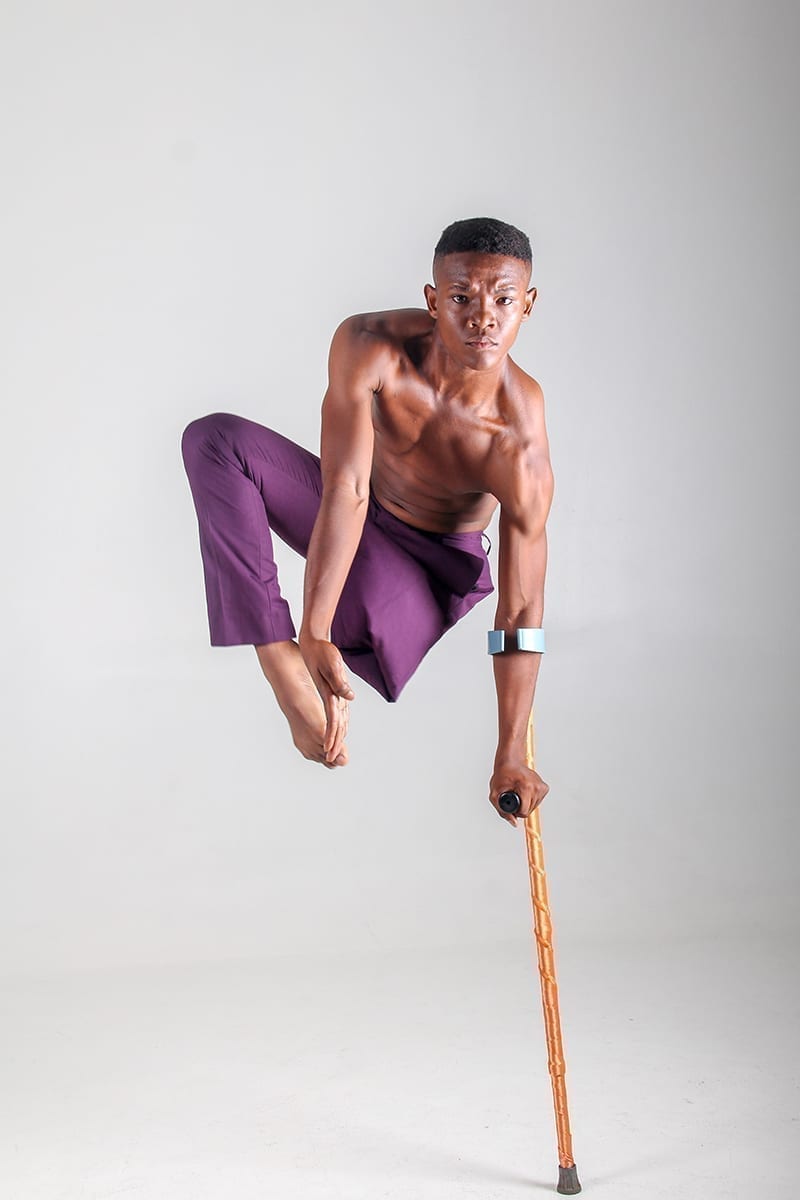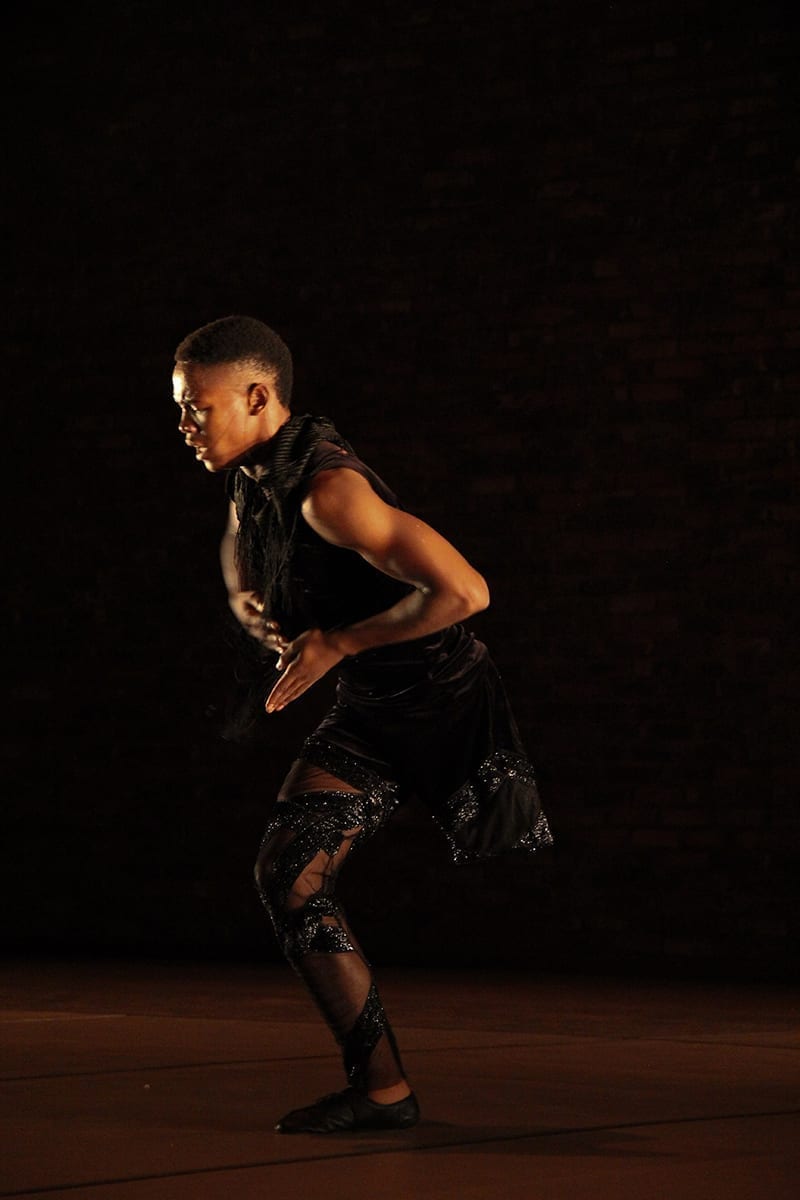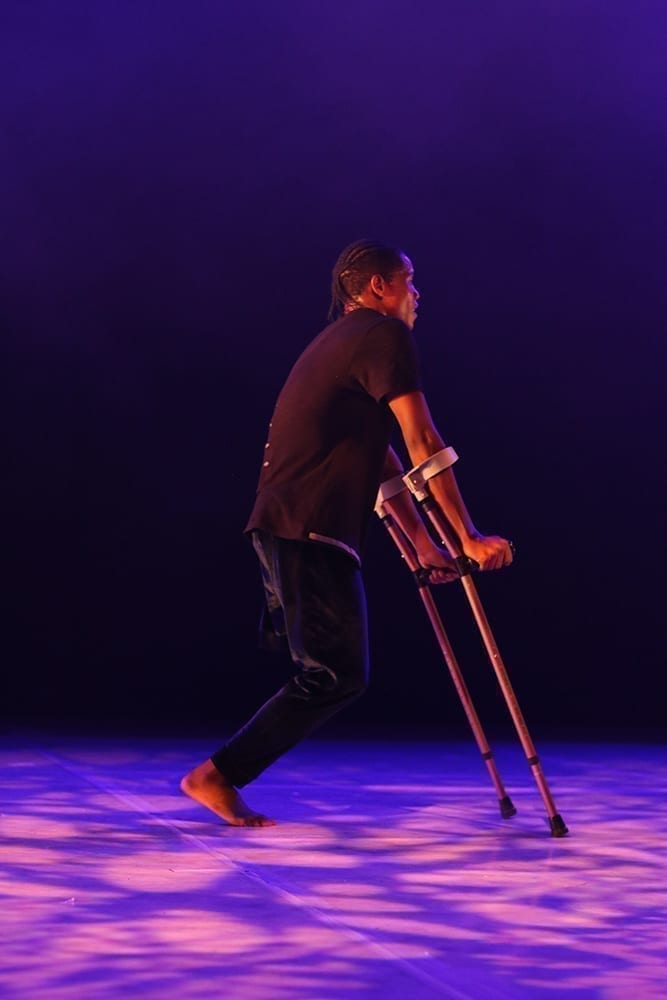When you hear about Musa Motha and his mix of talents and skills, it is hard to describe him in just a few words. And when you see him performing, it can take your breath away. Musa is a full-time professional dancer, choreographer, and motivational speaker. He is also a cancer survivor. As a performer with one leg, he wants to inspire other people who live with disability and break down social stereotypes. Today, he tells us his story, rich with personal interests, a clear vision and a rapidly growing successful career.
Musa Motha
Can you tell us a bit more about yourself?
I am South African and in 2006, when I was 11 years old, I was diagnosed with bone cancer, as a result of which my left leg had to be amputated. Before this tragic event, I was into soccer and dreamed of one day becoming a professional player. After my illness, I had to accept that I would not be able to pursue this dream. However, I believed that when one door closes, there is certainly always a window left open.
Once I had finished the necessary treatment and recovery programme, I decided to start focusing on dance. This was back in 2010 and I have been dancing ever since. I began with hip-hop and Pantsula, a form of street dance which originated in the South African townships.
In 2018, I started a professional dancing career with Vuyani Dance Theatre in Newtown, Johannesburg. This is where I have learned a whole lot more about dance, including ballet, classic, modern and contemporary dance, Afro fusion, tapdancing and other dance genres. Currently, I am freelancing and have been working with a number of international artists.

©Dokta Moyo
What attracted you to dancing?
After the recovery programme had finished, I was caught up in the moment. At that time, I was working as a DJ and played music with a group of friends – some of them were also dancers. They taught me a great deal about dancing, which proved to be a tipping point in my decision to try a dancing career as an alternative to soccer. I remembered they drew some boxes on the floor and told me to do various moves using my left crutch as a left leg. All this experience determined my choice to go into dancing.
Actually performing on stage only reinforced my decision. After one show, I came off the stage and met a spectator from the audience, someone I had never seen before. This man was older than me, maybe in his mid-30s. He came to me with tears in his eyes and said that I had blown his mind. His words stuck in my head: ‘Thank you for the things you do for us. Even if you do not see it, we feel it.’ He continued by saying that he had been thinking about committing suicide that night, and this was going to be the last event he ever attended. He told me that seeing my performance had changed his mind – he was now going home to his wife and kids to apologise to them, tell them what his initial plan was and what had made him change his mind.
At that point, I could not grasp properly what I had heard, but I did realise that something similar might have happened to a whole lot of people whom I performed for. This was a breaking point for me to take dancing seriously as a professional career path, and it became one of my top priorities. This encounter changed so much in my life. When that man was telling me his story, I was confused as to what was going on; however, I felt there was something that I had in me – something I never realised I had. Now, looking back, I understand it.
What type of dance do you find most enjoyable?
I believe in versatility of dance, so I am not focused on one style. I would like to know every dance genre possible in order to be able to express my feelings through dancing. Because I am an introvert by nature and I struggle to open up to other people, dancing actually helps me to show my feelings. In a way, I use dance as a therapy and way of expression.
One of the principles I live by is seeing people happy, so making my audience happy is one of the best goals I have set for myself. I guess, this is one of the things that influenced my dance career – making other people happy.
“I am an introvert by nature and I struggle to open up to other people, dancing actually helps me to show my feelings.”

©Dokta Moyo
Which aspects of dancing do you find most difficult?
There are many struggles that I have to take into account every day. One difficulty I have is following instructions of a choreographer and copying what someone else is doing. I am always tempted to give it my own twist and, of course, I need to adjust the moves to suit my own condition – dancing with a crutch.
When I joined the Vuvani Dance Theatre, the founder of the company, Gregory Maqoma, was coming up with options for me. He gave me the freedom to make mistakes and that helped me to come up with solutions that were tailored to my circumstances. I had to adapt to the whole group of dancers who were using hands while I was dependent on crutches. I suggested I eliminate one of the crutches, so that I could use one hand. That is when I really started developing my own technique. The most challenging thing to master was interaction with gravity – that’s where it’s all at. Without this relationship I would just be running around on stage without doing much else!
If you were not in dancing today, what else would you like to do?
There are moments when I think I cannot actually sustain myself from dancing. I live in a country that is so ignorant when it comes to the arts. Nowadays, it is difficult for artists to survive in South Africa – as it is in the rest of the world. However, having the drive and the right mindset, I am not too preoccupied with that just yet. I am convinced that if I do what I believe in, money and success will follow.
Another idea stuck in my mind is opening a school for psychically disadvantaged people. It would primarily focus on training them to be entrepreneurs in their chosen field and support them in starting their own business. The idea is to empower them and show that they can live their life with dignity and become independent and self-sustaining.
“I am convinced that if I do what I believe in, money and success will follow.”

©Dokta Moyo
What is the driving force in life? Share your recipe for success.
I would say hunger for personal growth. It means that almost every day I can do more than yesterday and become a better dancer than I am today.
One of the slogans I live by is ‘In everything I do, I do my best’. Doing your best will always attract the attention of other people. Every time I perform, I try to give it 100%, so that when other artists and choreographers see me, they would want to hire me. It works as self-promotion. As well as that, I often say, ‘Musa doesn’t believe in the word impossible; I break the word into two: IM and POSSIBLE’. This sends the message that everything is possible if you really try hard.
“I often say, ‘Musa doesn’t believe in the word impossible; I break the word into two: IM and POSSIBLE’. This sends the message that everything is possible if you really try hard.”
‘Do your best’ is easier said than done! What does your daily routine look like?
I usually start my day by getting up at 7:30 am and feeding my dogs. Throughout the day, I have a two- to three-hour workout, which consists of push-ups and weight lifting, followed by a ballet routine. Every dance genre originates from ballet, so I believe it is important to focus on ballet as a basis.
On top of my dancing career, I am entrepreneur, motivational speaker, music producer, video editor and photographer, and motivational speaker, which involves a lot of preparation and attending various meetings. All of that keeps me pretty busy when I am not dancing!
What has been your biggest struggle in life?
I think my biggest struggle was finding myself within the industry. In a way, I had to compromise on a whole lot of things. For instance, when I started dancing and advanced to the classical or professional level, I had to learn to eliminate one crutch, which was very straining at the beginning. Similarly, adapting to new dance styles is also a never-ending challenge because of how my body works with what it used to. I always succeed, but it takes me more time than it would an ordinary dancer.
The other thing that can be difficult is maintaining the mindset that followed me from the beginning of my career and helped me through difficult times. Keeping myself motivated has not always been easy, but I have finally mastered it by creating my own principles and slogans that I live by every day.
Which values are the most important for you?
The values that are closest to my heart are peace, happiness and family. Without peace, it would be misery; without happiness, it would be a sad, unhealthy life; and without family, I do not believe I would be where I am today.
How do you define happiness?
Happiness is a space where you deal with your negativity and can have zero worries. Where you are able to live the life you always wanted and eliminate as many negative things as possible. For me, happiness is the power to change that one positive thing into a thousand pluses.
What would be your one piece of advice to others?
Find your purpose and this will help you to set your direction. Do not believe in impossibilities and do not settle for less. In everything you do, do your best and never ever let any obstacles come in your way.
If you had a superpower, what global issue would you address and why?
I would change people’s mindsets to erase the negativity in everyone’s lives and instil happiness instead. I would remind everyone of their purpose – knowing that is really important.
“Find your purpose and this will help you to set your direction. Do not believe in impossibilities and do not settle for less. In everything you do, do your best and never ever let any obstacles come in your way.”
DETAILS
Name: Musa Motha
Industry: Dancing and Motivational speaking
Country: South Africa
